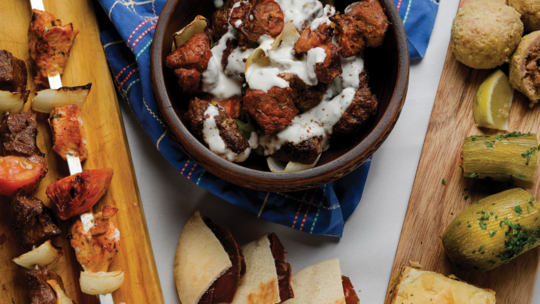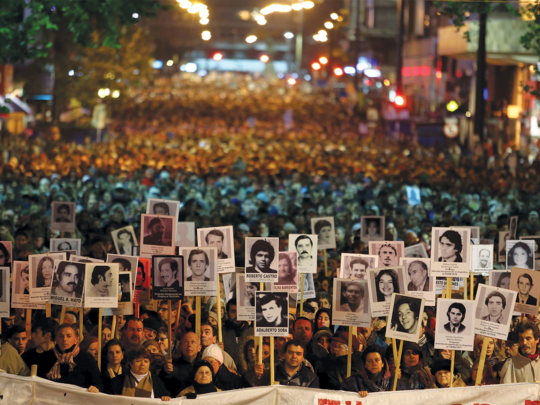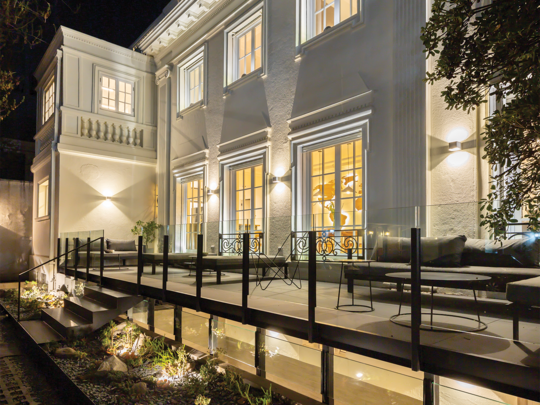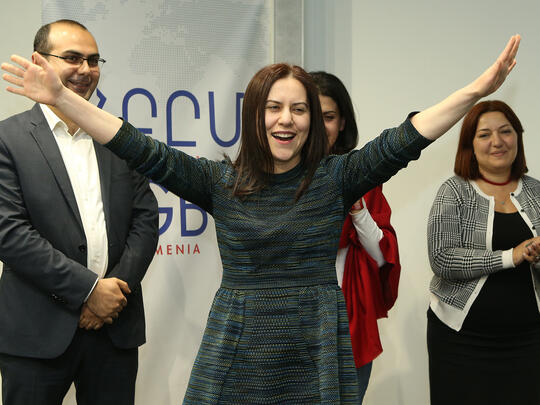Walk down any of the neat little streets that criss-cross Buenos Aires’ Armenia Street and see just how many of the locals will know exactly where Salon Nazarian is and why it’s one of the most popular “restaurants” in the area. But ask a senior student of the AGBU Marie Manoogian High School, and the name means something more—the chance to make the trip of a lifetime to Armenia.
For many of the 30 to 40-something 17-year-olds that graduate from the school every year, waiting tables at the salon is a labor of love. Friday and Saturday dinners organized by AGBU every week during the school term are an initiation into the world of work. The objective is simple: earn the funds to visit the land of their forefathers.
“Working toward a goal teaches the value of work and will broaden your mind like nothing you’ve experienced before,” promises Lusine Sarafian, a 2007 graduate of the school and an active young professional of AGBU Buenos Aires. “Meanwhile, traveling to Armenia helps young people reconnect with their Armenian origins,” she adds, which is no small feat for third-generation Argentine-Armenians living thousands of miles away from their ancestral homeland and who can barely speak the language, if at all.

A 43-year-old tradition of AGBU Buenos Aires, the first Friday dinners were served by an all-volunteer staff in 1977, back when the school patio could only accommodate 80 people and most tables were taken by the families of the student wait staff. As the school expanded under the generous sponsorship of prominent Armenians like Artemis and Nazar Nazarian, whose family name soars above the restaurant hall inside the school, so did its seating capacity and its reputation.
At 500 seats, Salon Nazarian has today become a hotspot for the Armenian and Middle Eastern food cravings of a hyped-up Palermo Soho, the epicenter of porteño nightlife, with features on Tripadvisor and the Argentine Guía Oleo guide.
With demand for tables on the rise and mounting pressure to serve consistently good food, AGBU Buenos Aires’ board of directors decided in 2008 to extend Friday night dinners to Saturday nights and hire professional cooks to replace the parents and grandparents who did all the cooking until then. “The restaurant became a business endeavor,” says Sarafian.
Still, the Friday and Saturday dinners are very much a family affair. As youth from both Armenian and Argentine backgrounds (non-Armenians too attend the school) serve the typical 1,000 locals and tourists that pour into the restaurant every week, the family matriarchs continue to assist the chefs who faithfully follow their recipes, with minor tweaks here and there. In the hall, the men of the community manage the cashiers and bring the brute force to uncork that requisite bottle of wine.
“By its very nature, food is the front door to Armenia and its culture,” says Sarafian, who in July 2019 accompanied her first cohort of 17 students on a two-week tour of Armenia some 12 years after her own experience of the country as a student. “With the door now open, the teens can not only discover how they can impact Armenia as both diasporans and global citizens, but also how Armenia can benefit them, if and when they decide to return.”




















